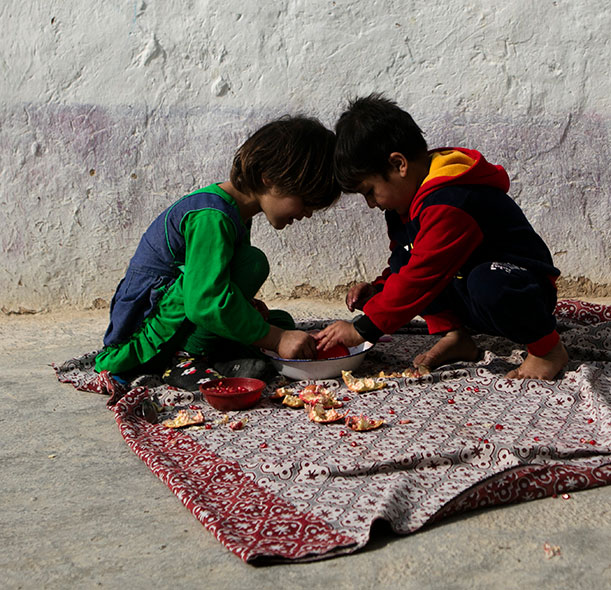It has been almost two weeks since the Taliban took power in Afghanistan and the humanitarian situation is alarming. More than half of the Afghan population – 18 million people – depends on humanitarian aid to survive, and more than 550,000 people are displaced within the country.
The consequences of decades of conflict are devastating, particularly for children under five suffering from hunger. Even before this latest crisis, 3.1 million children across Afghanistan were suffering from malnutrition – a deadly condition that is both preventable and treatable. Access to basic health, nutrition, water, and hygiene services is limited, and our teams are concerned about survival of malnourished children who can no longer access life-saving treatment because of the conflict.
Before the current crisis, our Nutrition teams found alarming rates of malnutrition among children. In Ghor province in December 2020, our study found that 15.9% of children under five years old were acutely malnourished, including 3.4% who were suffering from severe acute malnutrition – the deadliest form of hunger. In the same study, results shows that 45.5% of children were stunted, or chronically malnourished.
Action Against Hunger has worked in Afghanistan since 1979. Last year alone, our nutrition and health programmes provided care to 52,246 children under five and 13,416 pregnant and breastfeeding women.
Now, in Helmand, Ghor, Daykundi, and Badakhshan provinces, our teams are working to restart mobile health and nutrition clinics to reach the most isolated and vulnerable people. Our clinics are preparing to welcome back malnourished children, pregnant women and breastfeeding mothers to resume their treatment. Our food security and livelihoods experts are also planning to reopen our agricultural training programmes to help people grow food and make an income.
“We are working to get everyone back to work as soon as possible, both women and men.”
People have been suffering from conflict for more than 40 years, in addition to the effects of the climate crisis and the impacts of Covid-19. If the international community turns its back on them now, the humanitarian consequences will be disastrous.”
Action Against Hunger is ready to restart our activities as soon as possible in line with the humanitarian principles of neutrality, impartiality and independence. The international community must keep its commitment to the Afghan people – particularly by funding the humanitarian response plan. So far, just 39% of the funds needed have been secured.
Photo credit: Action Against Hunger/ Sandra Calligaro


